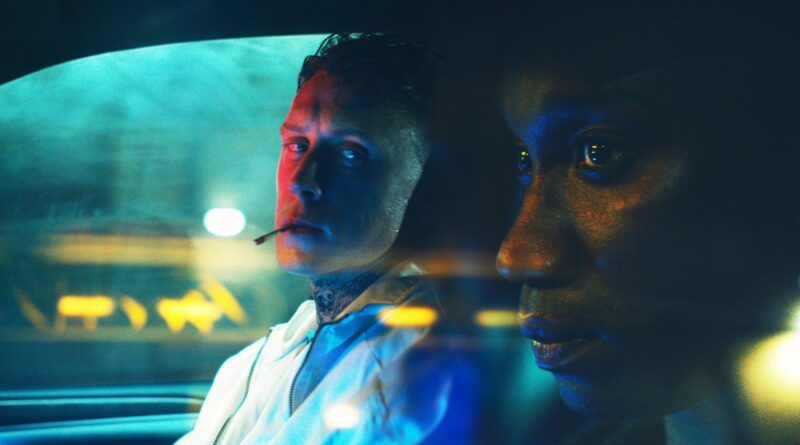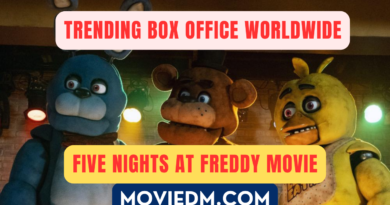The Impact of Social Media on Movie Marketing and Audience Engagement
In the age of digitalization, social media has revolutionized the way movies are marketed and how audiences engage with them. Gone are the days of traditional marketing techniques relying solely on television, print, and radio. Social media platforms have emerged as powerful tools that connect filmmakers, studios, and audiences in unprecedented ways. This article delves into the significant impact of social media on movie marketing and audience engagement.
1. Direct Communication with Audiences Social media platforms, such as Facebook, Twitter, Instagram, and TikTok, provide a direct line of communication between movie studios and their audiences. Filmmakers can post trailers, behind-the-scenes glimpses, and promotional content, enabling them to engage with fans on a personal level. This level of transparency fosters a sense of community and excitement around upcoming releases.
2. Viral Marketing and Hashtags The concept of virality has gained immense importance in movie marketing due to social media. A well-crafted trailer or teaser can spread like wildfire across platforms, generating millions of views within hours. Hashtags related to a movie’s title or theme allow users to participate in discussions and trends, amplifying the movie’s visibility. This organic approach often translates into increased audience engagement and ticket sales.
3. Influencer Partnerships Social media influencers, individuals with a significant online following, have become crucial in promoting movies. Studios collaborate with influencers to review films, share content, and host giveaways, leveraging their large and engaged fan bases. This strategy extends the reach of marketing efforts and connects with niche audiences that these influencers cater to.
4. Interactive Campaigns Movie marketing has evolved from a one-way communication model to an interactive experience. Studios create engaging campaigns that encourage audience participation, such as challenges, contests, and quizzes related to the film. This not only deepens the audience’s connection with the movie but also generates user-generated content, further promoting the film across various platforms.
5. Real-time Updates Social media ensures that movie-related updates are disseminated in real time. Filmmakers can share breaking news, cast announcements, and event coverage instantaneously. This immediacy builds anticipation and allows audiences to stay informed about their favorite movies, enhancing their engagement.
6. Global Reach One of the most significant advantages of social media is its ability to transcend geographical boundaries. Movie marketing campaigns can now reach audiences across the globe, enabling international releases to create buzz and excitement simultaneously. Social media platforms break down language barriers, making trailers and promotional content accessible to a diverse range of viewers.
7. Data Analytics and Targeted Marketing Social media platforms provide invaluable data analytics tools that allow studios to understand audience demographics, preferences, and engagement patterns. This information enables targeted marketing efforts, ensuring that promotional content reaches the most receptive audiences. As a result, marketing budgets are utilized more efficiently, leading to higher return on investment.
8. Extended Lifespan of Marketing Unlike traditional media, social media marketing campaigns have a longer lifespan. Posts, videos, and other content remain accessible and shareable long after a movie’s release. This sustained presence keeps the movie alive in the minds of audiences, potentially driving more viewers to watch it over time.
9. Feedback and Adaptation Social media platforms serve as immediate feedback channels, enabling filmmakers and studios to gauge audience reactions. Positive responses can be capitalized upon, while constructive criticism can guide adaptations in marketing strategies or even in the movie itself. This agile approach contributes to better audience engagement and improved movie quality.
10. Fan-driven Promotion Passionate fans play a crucial role in the success of movies on social media. Fan theories, fan art, and fan-generated content contribute to ongoing conversations about the film, extending its reach beyond the studio’s efforts. Studios often celebrate fan contributions, strengthening the bond between the movie and its audience.
In conclusion, social media has transformed movie marketing and audience engagement into an interactive, dynamic, and global experience. Through direct communication, virality, influencer partnerships, interactive campaigns, and more, social media platforms have reshaped the way movies are promoted and experienced. As technology continues to advance, the relationship between social media and the film industry will likely evolve even further, presenting new opportunities and challenges for filmmakers and audiences alike.




